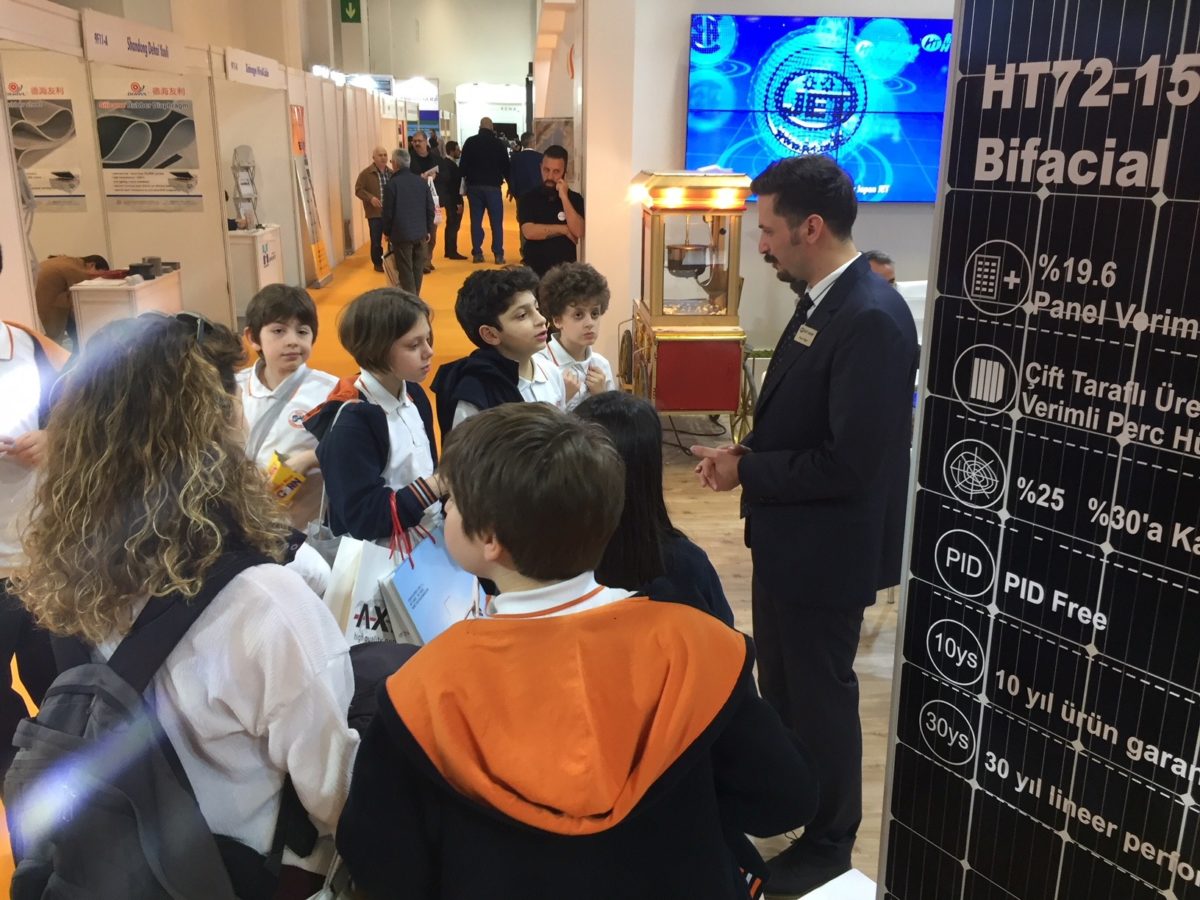Policy makers in Turkey have long attempted to balance the demands of its module manufacturers and its developers – looking to develop both large scale projects and the distributed market. The market has contracted significantly from highs achieved in 2017, when the market was Europe’s largest, and there appear to have been attempts to prop up local manufacturers – if the reports from some module makers are to be believed.
“European module imports are not being allowed into Turkey,” says one European module maker, which reported the development to pv magazine during the Solarex trade show currently underway in Istanbul. “That is why there are so few module makers here at the show.”
Indeed, many tier one module makers do not have booths at Solarex 2019. Present are JA Solar, Talesun and Panasonic, but beyond these established players there are few familiar names. Tongwei is exhibiting, although likely in aid of supplying the Turkish module assembly outfits with PV cells. Some lower-tier module manufacturers are present.
Chinese manufacturers are particularly hampered by anti-dumping duties, introduced in 2017 – increasing their price by some 30%. But the lack of visibility from module makers at present extends beyond China.
Korean supplier Hanwha Q Cells is conspicuous in its absence. Hanwha, which does incur anti-dumping duties on production from its Chinese operations, had a very strong presence at Solarex and in Turkey in past years – partly on the back of its success under the troubled 1 GW Yeka tender that was to be developed in Konya under a joint venture, but is currently floundering.
The European module maker complaining about the lack of market access asks rhetorically: “Why is Jinko not here? Why is Hanwha not here?”
“Everyone needs modules at the moment,” comments H. Senkan Süzer, the Chairman of prospective cell and module maker Ekore. “But with the weak current state of the market, it’s not a major problem.” Ekore is pursuing ambitious plans to establish fully integrated gigawatt scale production in Turkey’s south. While acknowledging that restricted module imports is having limited impact at present, Süzer says that if the market was to pick up suddenly, supply would be tight.
Popular content
The restriction on PV module imports is nothing new. For some years administrative approval had been required to bring PV panels into Turkey, however it appears that as the installation market contracted officials have restricted foreign-made module market access.
Consultant Muren Guler, from Global Energy Ltd., confirms that it is likely that module imports are being restricted by Turkish officials as a result of pressure from domestic manufacturers. He says that if demand rebounds, concessions to foreign suppliers will likely be made. He said that for the market to pick up the rooftop is key.
Enabling legislation to facilitate both C&I and residential PV arrays, expected to come in the form of net metering, is expected to be imminent. However, it has been delayed by recent local elections throughout the country. Guler says that in the C&I segment alone, gigawatts of demand could easily be created through net metering.
“In Turkey’s industrial zones alone, 3-4 GW of rooftop demand could be created very easily,” says Guler. He says that both overseas suppliers and Turkey’s home-grown manufacturers would benefit from the implementation of a net metering regime.
Turkey’s manufacturers, of which there are some 20-25 remain albeit at low utilization rates, are expected to produce some 280 – 300 MW of modules in 2019. Much of this production is operating on a “spot production” basis – starting production only when an order is placed – according to reports from production materials suppliers.
This content is protected by copyright and may not be reused. If you want to cooperate with us and would like to reuse some of our content, please contact: editors@pv-magazine.com.



By submitting this form you agree to pv magazine using your data for the purposes of publishing your comment.
Your personal data will only be disclosed or otherwise transmitted to third parties for the purposes of spam filtering or if this is necessary for technical maintenance of the website. Any other transfer to third parties will not take place unless this is justified on the basis of applicable data protection regulations or if pv magazine is legally obliged to do so.
You may revoke this consent at any time with effect for the future, in which case your personal data will be deleted immediately. Otherwise, your data will be deleted if pv magazine has processed your request or the purpose of data storage is fulfilled.
Further information on data privacy can be found in our Data Protection Policy.